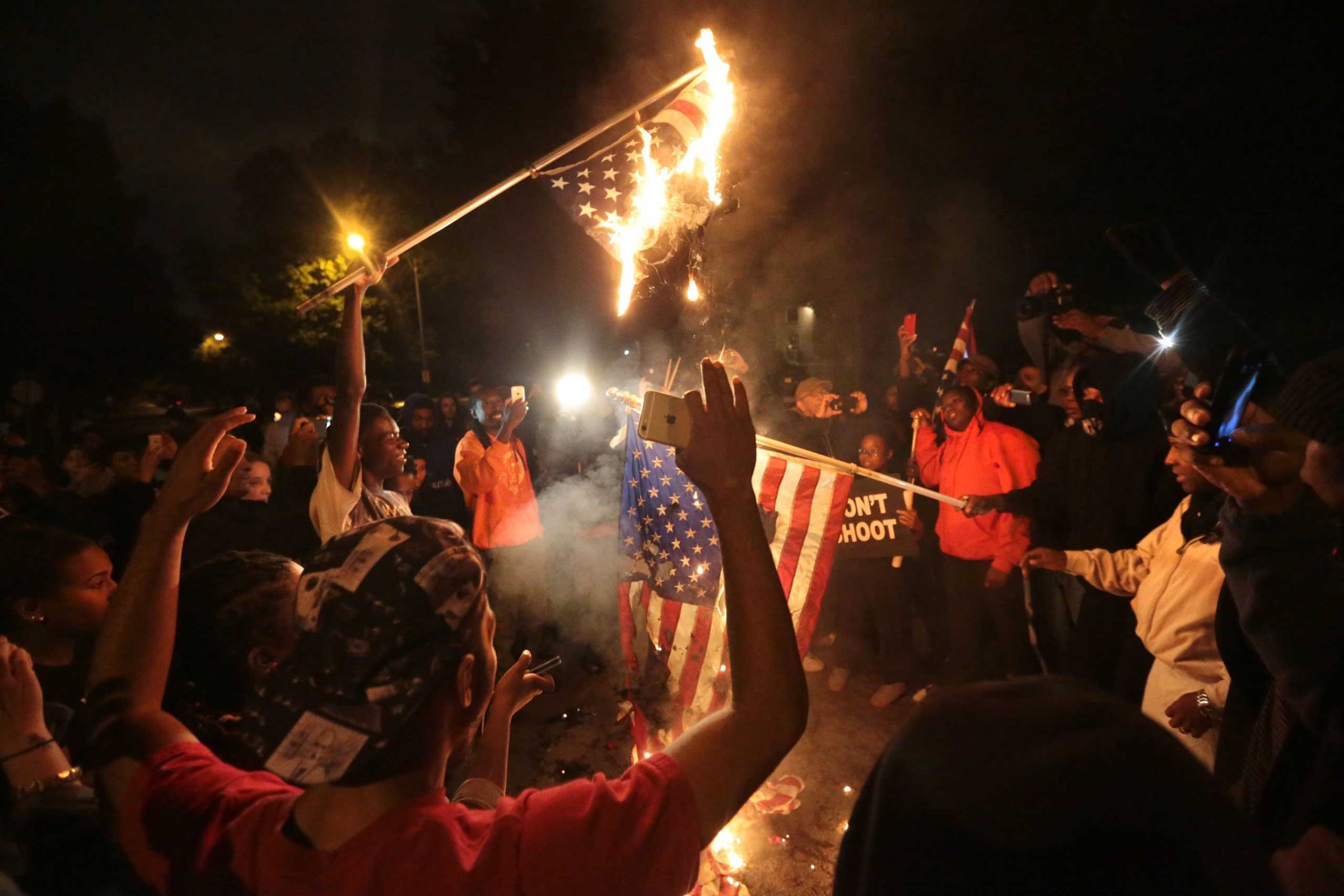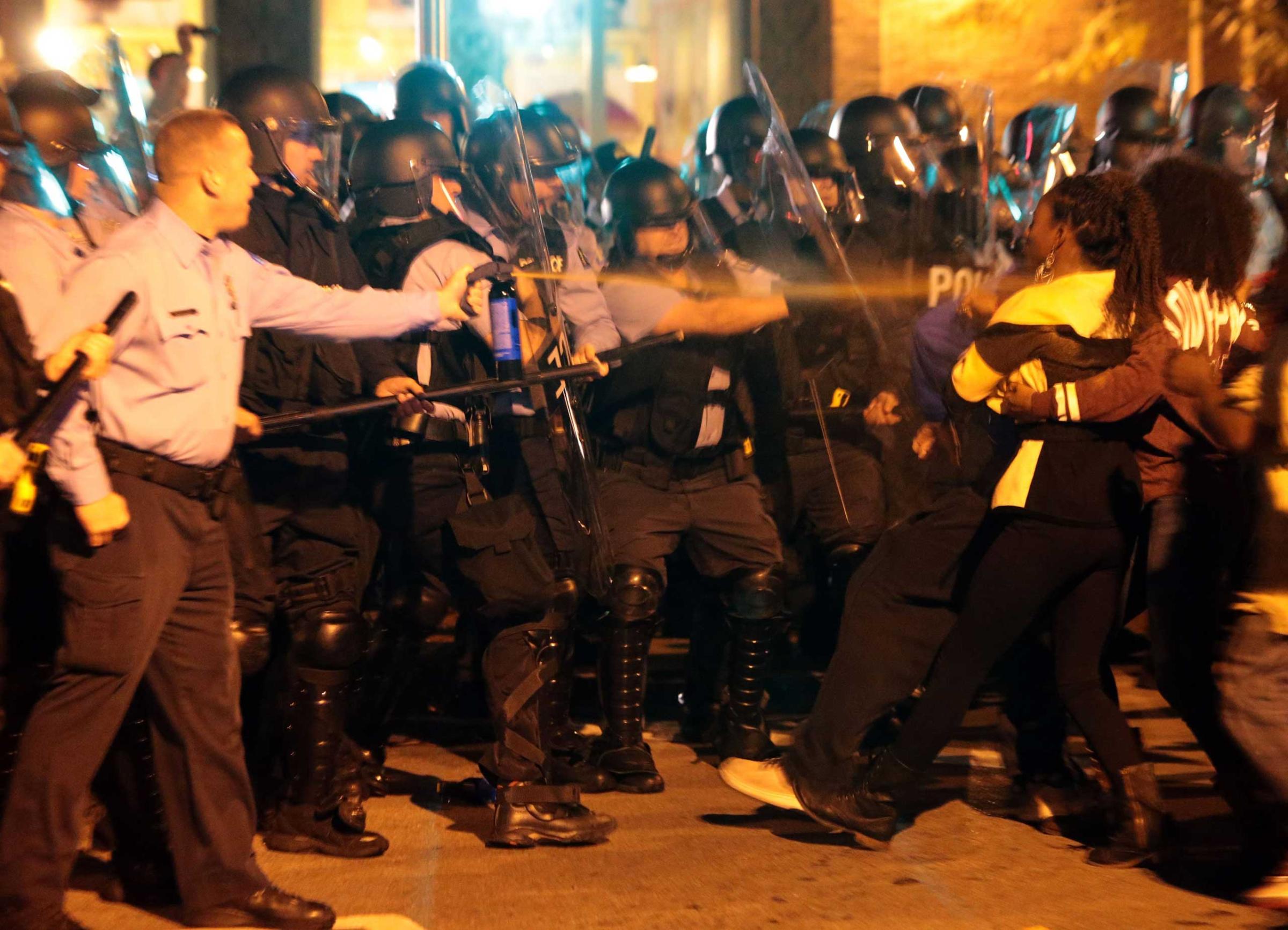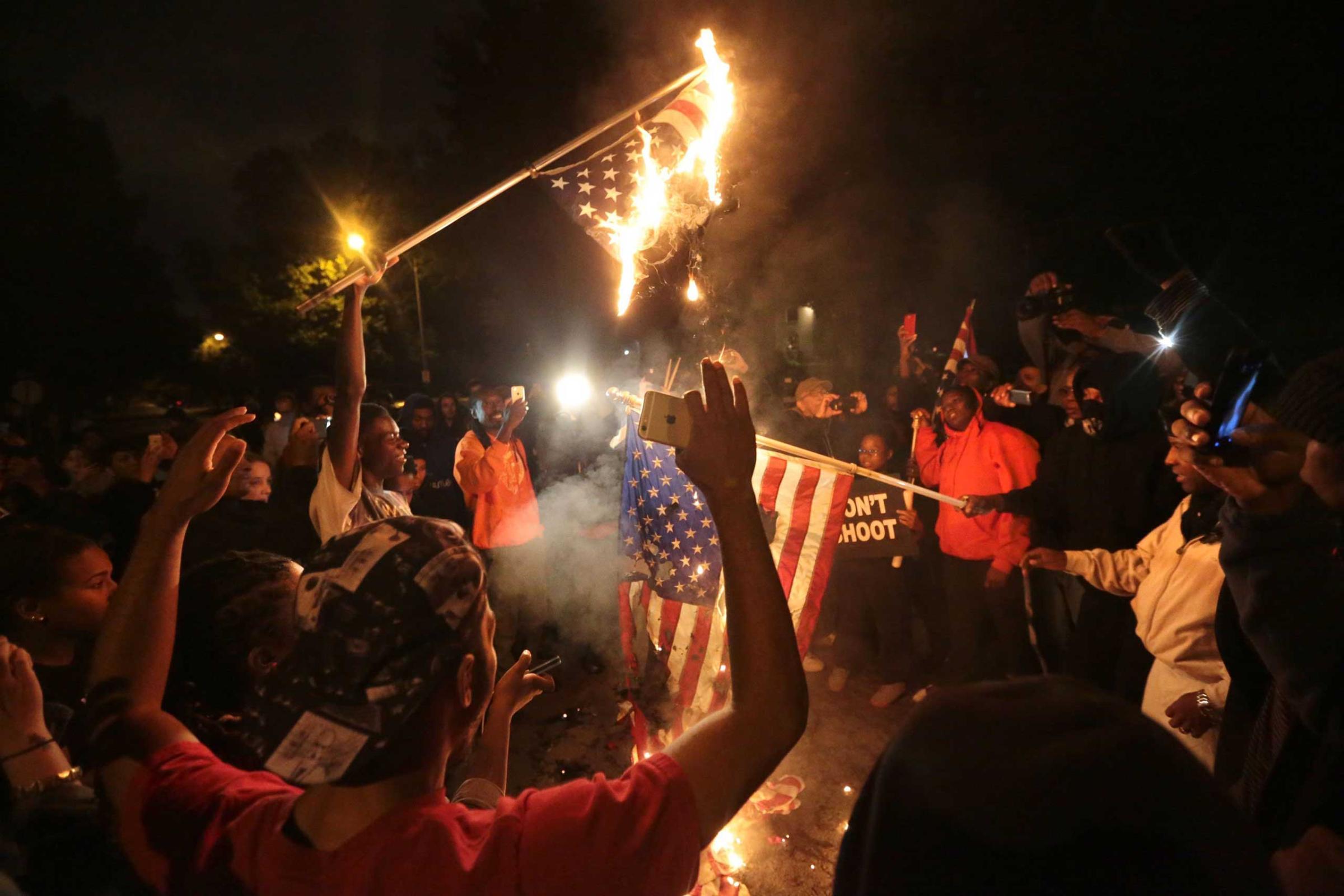
Laurie Skrivan, a staff photographer at the St. Louis Post-Dispatch, has been documenting the unrest in Ferguson, Mo. and the greater St. Louis area since protests erupted in August over the fatal shooting of unarmed black teenager Michael Brown by police officer Darren Wilson. On Oct. 8, 2014, amid new protests following the fatal shooting of Vonderrit Myers, Jr. who allegedly opened fire during a chase with an off-duty police officer, Skrivan captured two very different images that embody the current tensions in St. Louis.
TIME spoke with Skrivan about her experience photographing the protests and what these two photos represent.
Despite the abundant coverage of the continuing protests in Ferguson and St. Louis, Mo., Laurie Skrivan’s photographs of protesters burning American flags and of a police officer pepper-spraying two women stand out; highlighting the fragile and tense atmosphere in St. Louis.
In the evening of Oct. 8, a peaceful vigil was held to remember Vonderrit Myers, Jr., an 18-year-old man killed by an off-duty police officer. The vigil lasted well into the night, with some members of the crowd deciding to protest in a nearby upscale neighborhood on Flora Place in St. Louis. “They wanted to bring their voice to that street,” says Skrivan, who photographed the protest for the St. Louis Post-Dispatch. “They were marching down that street thinking: ‘Hey, this is going to get people mad. Let them know what it feels like to have unrest in their neighborhood’.”
As the protesters were marching down the street, a few removed flags from houses, Skrivan says. “Out of nowhere this kid just took a lighter and lit one of the flags on fire. And then, like clockwork, the crowd gathered around and people just kept giving more flags to burn. You could hear some people chanting: ‘Burn, baby, burn.’ Others were making comments like: ‘Black men live in a different country,’ or ‘We don’t feel a part of our country.’ [It] was pretty intense.”
Friends and colleagues with whom she discussed the photo, which was published inside the next morning’s edition of the St. Louis Post-Dispatch, told Skrivan that the protesters wouldn’t get any sympathy if they were seen burning flags. “I don’t know if they want sympathy,” Skrivan says. “They want a voice. They want people to see how they feel and that they’re tired of their friends and their sons getting shot.”

That same evening, Skrivan followed the protesters to an area where an “officer in need of aid” call resulted in a barricade formed of riot gear-clad police officers. The protesters were clearly agitated, exchanging insults with officers, Skrivan says. Police eventually informed protesters that they would be arrested for unlawfully gathering if they did not disperse.
“There was a group of two or three women who went up close to the police and started yelling,” Skrivan says. “Then there was a physical altercation, they [the police] put their hands on [one of the women], and then you saw the direct stream of mace.”
Viewing both photographs together, “you get a more realistic sense of the scene, how [everyone is] being treated,” Skrivan says. “Some people will look at that photo and say ‘I can’t believe the police are doing that!’ And then other folks will say ‘Of course they’re doing that! What are [these protesters] doing out at night… and they burnt the flag earlier!’ They’re connecting dots in very individualistic ways. It’s surprising to me.”
“Reporting on this story just takes me back to the basics,” Skrivan says. “Sometimes it makes me question how much we really hear each other when we’re talking. I think about that a lot. How are we going to get better? How are we going to grow? There’s just so much distrust out there.”
Laurie Skrivan is a staff photographer at the St. Louis Post-Dispatch
Marisa Schwartz is an Associate Photo Editor at TIME.com


More Must-Reads from TIME
- Your Vote Is Safe
- The Best Inventions of 2024
- How the Electoral College Actually Works
- Robert Zemeckis Just Wants to Move You
- Column: Fear and Hoping in Ohio
- How to Break 8 Toxic Communication Habits
- Why Vinegar Is So Good for You
- Meet TIME's Newest Class of Next Generation Leaders
Contact us at letters@time.com